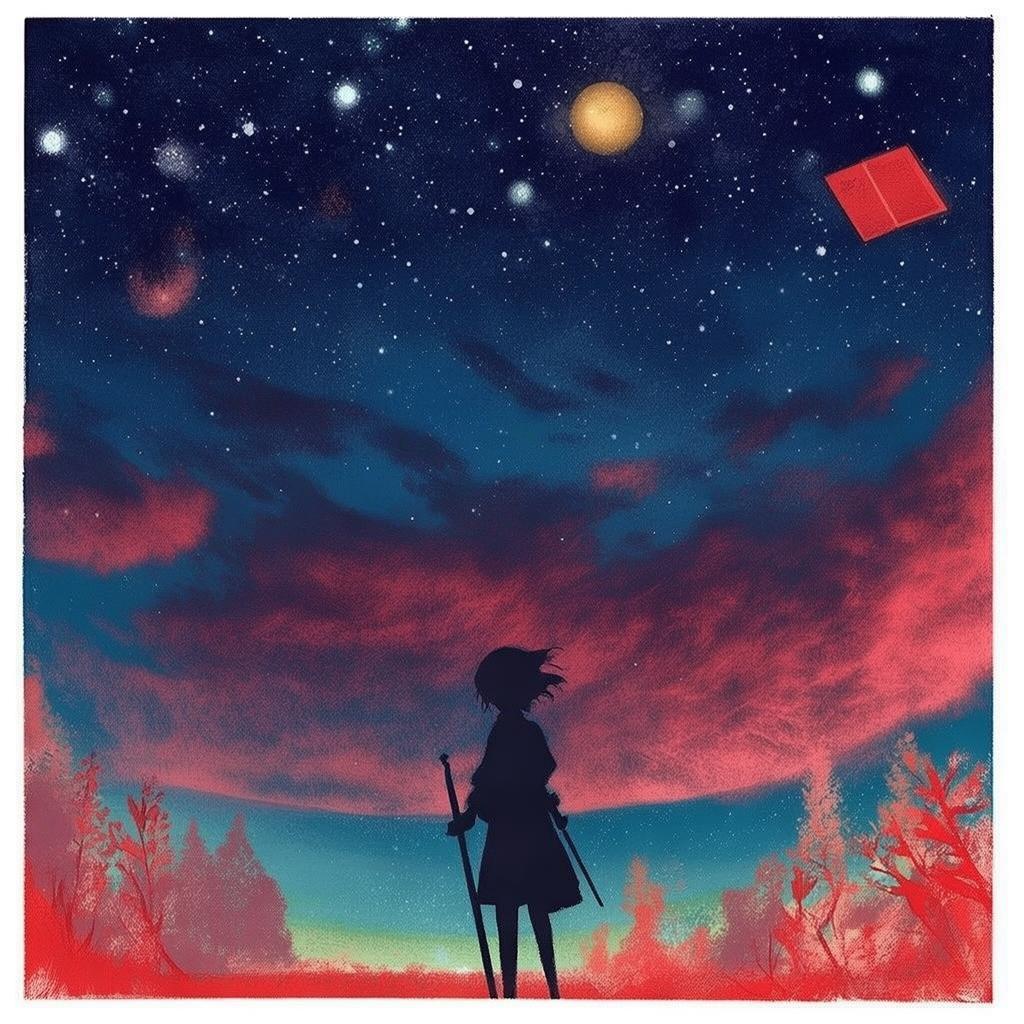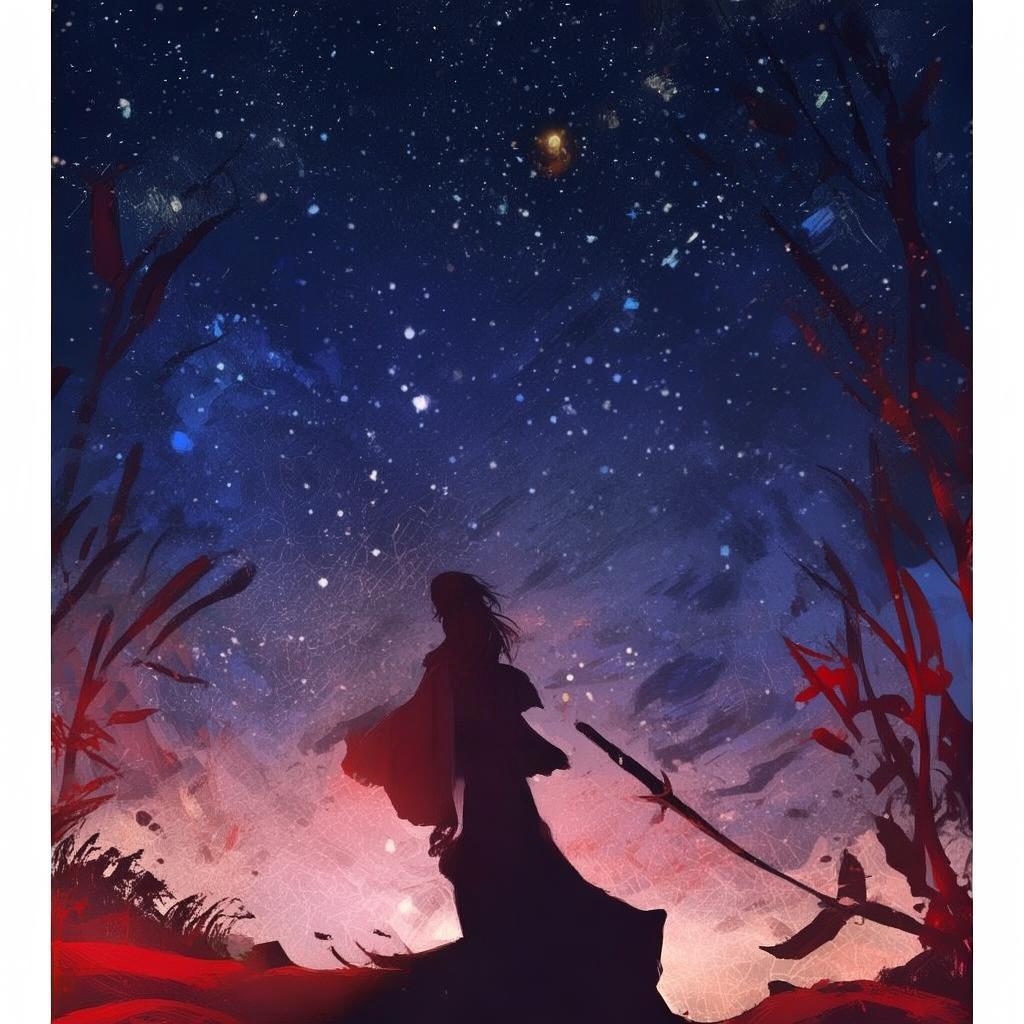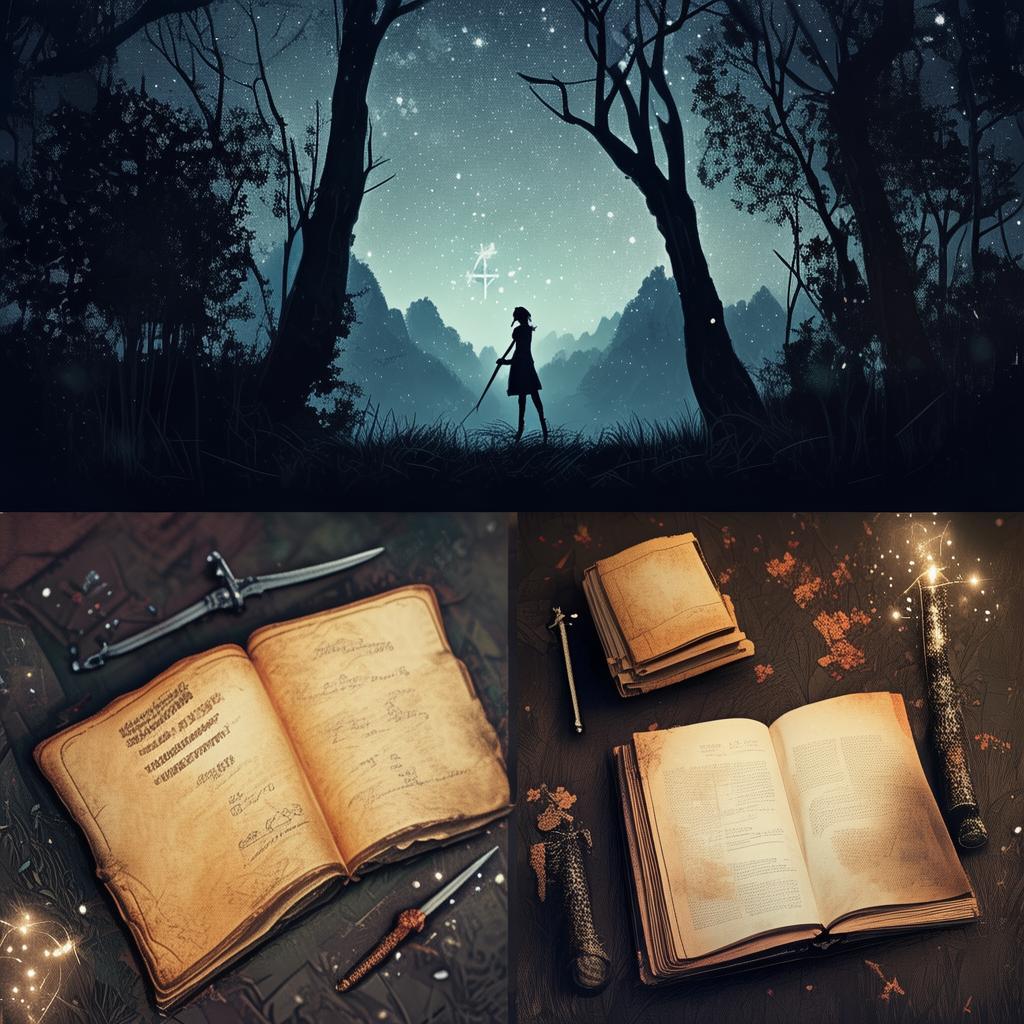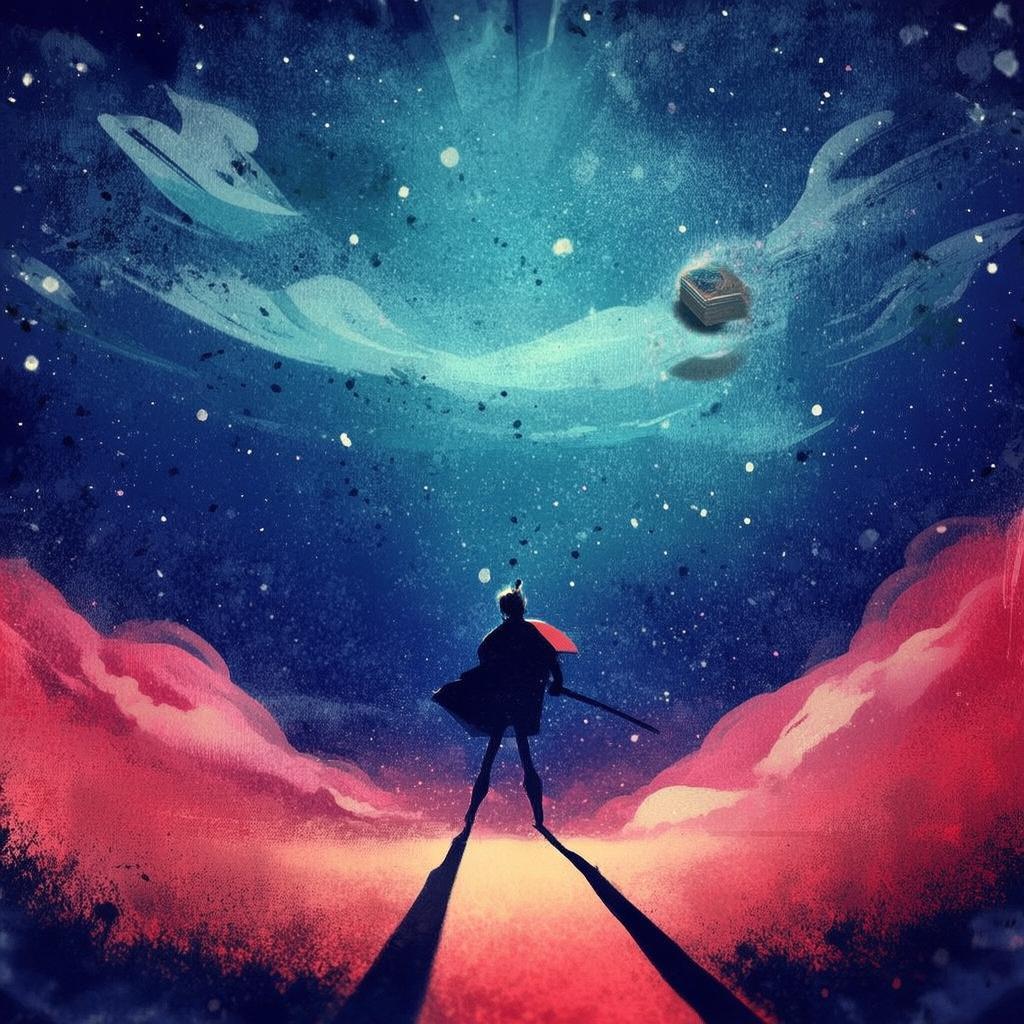The Bandit's Redemption: A Tale of Betrayal and Forgiveness
In the shadowed corners of the desolate Badlands, where the sun baked the earth into a hard crust and the wind howled through the barren hills, there was a tale that whispered among the outcasts and travelers. It was the story of Banjo, the Benevolent Bandit, a man who robbed from the rich and gave to the poor, a legend who walked the line between villain and hero.
Banjo's Bountiful Bonanza had been a place of hope for many. The Benevolent Bandit, with his silver mask and flowing cloak, had become a symbol of justice for the oppressed. But as the sun dipped below the horizon, casting long shadows over the Badlands, a new chapter in the tale of Banjo was about to unfold.
The night was as dark as the soul of the bandit who now lay shackled in a cold, damp cell. Banjo had been framed for a heist that had left a trail of bodies in its wake. The evidence was irrefutable, and the townsfolk were clamoring for his blood. The once-cherished title of "Benevolent Bandit" had turned into a curse, a label that followed him like a shadow, a betrayal that cut deeper than any sword.
But Banjo was no ordinary bandit. His heart was as vast as the Badlands themselves, and his spirit was as unyielding as the mountains that surrounded him. As he lay in his cell, the whispers of the night filled his ears, but they were not the words of fear or despair. They were the voices of those he had helped, the echoes of their gratitude, the silent promise that he would return.
The door to the cell creaked open, and a figure stepped into the dim light. It was a young woman, her eyes wide with a mixture of fear and determination. "Banjo, you must leave," she said, her voice barely above a whisper. "The townsfolk are coming for you. They will kill you."
Banjo's eyes met hers, and he smiled, a rare and genuine smile that spoke of a man who had known both joy and sorrow. "I have no intention of leaving," he replied. "I must find out who framed me. I must clear my name."
The woman hesitated, then reached into her cloak and pulled out a small, leather-bound journal. "This is the evidence," she said. "It will prove your innocence. But you must be careful. The man who framed you is powerful, and he will stop at nothing to silence you."
Banjo took the journal, flipping through the pages filled with accounts of the heist and the names of the men who had taken part. He nodded, his eyes narrowing. "I will find him," he said. "And I will make him pay."
As the night deepened, Banjo's resolve hardened. He knew that the path ahead would be fraught with danger, but he also knew that he could not rest until he had the truth. He had to uncover the conspiracy that had ensnared him, to find the betrayer who had turned the people against him.
He left the cell, stepping into the cold night air. The Badlands were his home, and he knew every shadow, every crevice. As he traveled through the desolate landscape, he encountered a myriad of challenges. He faced off against bandits who sought to take him down, outwitted the riddles of the land, and even found himself in the clutches of a mysterious figure who seemed to know more about his past than he did himself.
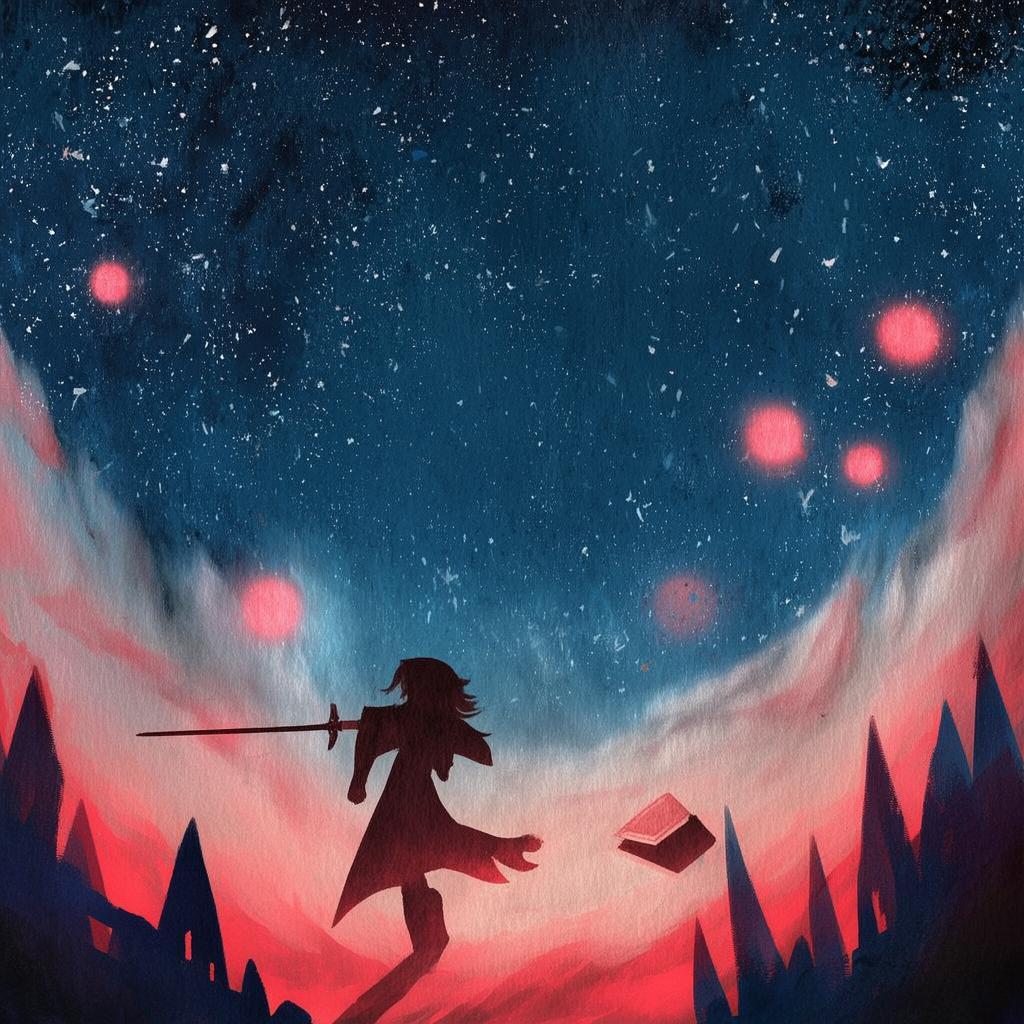
Through it all, Banjo remained resolute. He was not just seeking to clear his name; he was seeking justice for the innocent who had been framed, for the townsfolk who had been deceived, and for the truth that had been hidden from him.
The climax of his journey came when he confronted the man who had framed him. It was a confrontation filled with tension and betrayal, where the lines between friend and foe blurred. In a heated exchange, Banjo revealed the man's true intentions, and the man, caught in the act, was forced to admit his guilt.
The revelation was a heavy burden for Banjo to bear, but it was also a moment of redemption. The man who had betrayed him was now in his debt, and Banjo offered him a chance to make amends. The man accepted, and with his help, Banjo was able to set things right.
In the end, Banjo returned to the Badlands, his name cleared, his reputation restored. The townsfolk welcomed him back with open arms, and the Badlands once again became a place of hope and prosperity. Banjo's Bountiful Bonanza had been reborn, and the Benevolent Bandit had found his true purpose.
The tale of Banjo, the Benevolent Bandit, was one of betrayal and forgiveness, of darkness and light, of a man who had the courage to face his past and the strength to overcome it. It was a story that would be told for generations, a tale that would inspire and challenge, a story that would never fade from the hearts of those who heard it.
✨ Original Statement ✨
All articles published on this website (including but not limited to text, images, videos, and other content) are original or authorized for reposting and are protected by relevant laws. Without the explicit written permission of this website, no individual or organization may copy, modify, repost, or use the content for commercial purposes.
If you need to quote or cooperate, please contact this site for authorization. We reserve the right to pursue legal responsibility for any unauthorized use.
Hereby declared.
